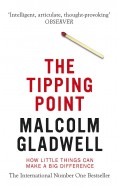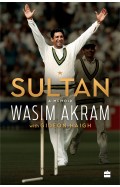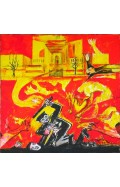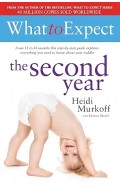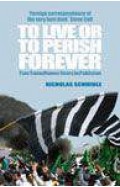- Home
- Non Fiction
- History
- General Agha Mohammad Yahya Khan: The Rise and Fall of a Soldier, 1947-1971
General Agha Mohammad Yahya Khan: The Rise and Fall of a Soldier, 1947-1971
By: Brigadier A. R. Siddiqi
-
Rs 805.50
- Rs 895.00
- 10%
You save Rs 89.50.
Due to constant currency fluctuation, prices are subject to change with or without notice.
Although this book is about General Yahya Khan’s personal trajectory in the Pakistan Army, yet it most importantly offers a historical insight into key political events from 1947 to 1971. The author, popularly regarded as Yahya Khan’s important PR-man, throws new light on the 1965 war and the still mysterious change in command in mid-offensive during that war; Yahya Khan’s take-over of power from Field Marshal Mohammad Ayub Khan; army action and surrender in East Pakistan, and other issues considered contentious to-date. Moreover, this book offers an analysis on the Pakistan Army’s ideological positioning—in its Introduction, ‘The Pakistan Army and an Anatomy of Jihad’—throughout these years which help us understand the nature of armed conflicts within and without, the infiltration of the jihadi ethos against conventional professionalism of the army, as protectors of the homeland.
While most of the failings in the higher military and political command and that of the civil servants and politicians, of that time are well-known, and covered in a number of retrospective books, memoirs, and the Hamoodur Rehman Commission Report, this book holistically questions and analyses those alleged failings since the author presents his first-hand, objective account as a witness to essential developments in 1965 and 1971 wars and the events leading to both periods. Therefore, as an former Army PRO, Brigadier Siddiqi’s is an inside account and he does not hesitate to speak his mind.
Although this book is about General Yahya Khan’s personal trajectory in the Pakistan Army, yet it most importantly offers a historical insight into key political events from 1947 to 1971. The author, popularly regarded as Yahya Khan’s important PR-man, throws new light on the 1965 war and the still mysterious change in command in mid-offensive during that war; Yahya Khan’s take-over of power from Field Marshal Mohammad Ayub Khan; army action and surrender in East Pakistan, and other issues considered contentious to-date. Moreover, this book offers an analysis on the Pakistan Army’s ideological positioning—in its Introduction, ‘The Pakistan Army and an Anatomy of Jihad’—throughout these years which help us understand the nature of armed conflicts within and without, the infiltration of the jihadi ethos against conventional professionalism of the army, as protectors of the homeland.
While most of the failings in the higher military and political command and that of the civil servants and politicians, of that time are well-known, and covered in a number of retrospective books, memoirs, and the Hamoodur Rehman Commission Report, this book holistically questions and analyses those alleged failings since the author presents his first-hand, objective account as a witness to essential developments in 1965 and 1971 wars and the events leading to both periods. Therefore, as an former Army PRO, Brigadier Siddiqi’s is an inside account and he does not hesitate to speak his mind.
General Agha Mohammad Yahya Khan: The Rise and Fall of a Soldier, 1947-1971
By: Brigadier A. R. Siddiqi
Rs 805.50 Rs 895.00 Ex Tax :Rs 805.50
Zubin Mehta: A Musical Journey (An Authorized Biography)
By: VOID - Bakhtiar K. Dadabhoy
Rs 892.50 Rs 1,050.00 Ex Tax :Rs 892.50
No God But God: The Origins, Evolution and Future of Islam
By: Reza Aslan
Rs 2,236.00 Rs 2,795.00 Ex Tax :Rs 2,236.00
The Tipping Point: How Little Things Can Make a Big Difference
By: Malcolm Gladwell
Rs 2,245.50 Rs 2,495.00 Ex Tax :Rs 2,245.50
The Pakistan Lawyers' Movement: An unfinished agenda
By: Muneer A. Malik
Rs 505.75 Rs 595.00 Ex Tax :Rs 505.75
Viva Dictionary Of Punctuation And Hyphenation
By: William Gould
Rs 127.50 Rs 150.00 Ex Tax :Rs 127.50
And Another Thing... (The Hitchhiker's Guide to the Galaxy)
By: Eoin Colfer
Rs 355.50 Rs 395.00 Ex Tax :Rs 355.50
Collins Pocket Italian Dictionary
By: Collins Dictionaries
Rs 1,847.50 Rs 3,695.00 Ex Tax :Rs 1,847.50
No God But God: The Origins, Evolution and Future of Islam
By: Reza Aslan
Rs 2,236.00 Rs 2,795.00 Ex Tax :Rs 2,236.00
The Tipping Point: How Little Things Can Make a Big Difference
By: Malcolm Gladwell
Rs 2,245.50 Rs 2,495.00 Ex Tax :Rs 2,245.50
The Pakistan Lawyers' Movement: An unfinished agenda
By: Muneer A. Malik
Rs 505.75 Rs 595.00 Ex Tax :Rs 505.75
No recently viewed books available at the moment.
Zubin Mehta: A Musical Journey (An Authorized Biography)
By: VOID - Bakhtiar K. Dadabhoy
Rs 892.50 Rs 1,050.00 Ex Tax :Rs 892.50
General Agha Mohammad Yahya Khan: The Rise and Fall of a Soldier, 1947-1971
By: Brigadier A. R. Siddiqi
Rs 805.50 Rs 895.00 Ex Tax :Rs 805.50
No God But God: The Origins, Evolution and Future of Islam
By: Reza Aslan
Rs 2,236.00 Rs 2,795.00 Ex Tax :Rs 2,236.00
The Tipping Point: How Little Things Can Make a Big Difference
By: Malcolm Gladwell
Rs 2,245.50 Rs 2,495.00 Ex Tax :Rs 2,245.50
The Pakistan Lawyers' Movement: An unfinished agenda
By: Muneer A. Malik
Rs 505.75 Rs 595.00 Ex Tax :Rs 505.75












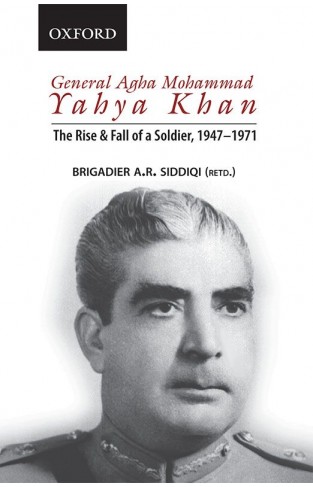
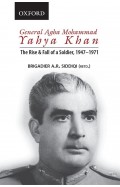
-120x187.jpg?q6)






